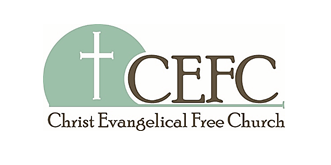Plurality of Leadership
In an edition of “Reach Out”, the EFCA discussed Congregationalism. In this article, the case for the plurality of leadership was presented. Our discussion concerning this article was as follows:
When we examine the New Testament, it is clear that the pattern for all New Testament churches was leadership by a plurality of elders. James, one of the earliest books, instructed the sick to “call for the elders of the church” (James 5:14). Paul’s regular practice was to appoint elders to oversee the work in the churches that he planted on his missionary journeys (Acts 14:23). Later, Paul gave written instructions to both Timothy and Titus regarding the appointment of elders (Titus 1:5). Peter as well gave instructions regarding how the elders were to shepherd the flock of God (1 Peter 5:1-5). What is clear from these and other New Testament references to eldership is that they are always referred to in the plural.
What about other terms that are used in the New Testament for its leaders? It may surprise many of you to discover that the noun “pastor” only occurs one time in the New Testament (Eph 4:11). Although the noun is only used one time, the responsibility to “pastor” or “shepherd” God’s flock occurs numerous times, being listed as the responsibility of the elders. For example, Peter instructed the elders to “shepherd the flock of God (1 Peter 5:2). And Paul, at the end of his third missionary journey, prior to going to Jerusalem, “sent to Ephesus and called to him the elders of the church” (Acts 20:17). Before leaving them, he exhorted them “to shepherd the church of God (Acts 20:28).
Another term that is used in the New Testament is bishop (depending on your translation). A bishop is an overseer. When we look at the responsibilities of elders, they are instructed to “exercise oversight” over God’s flock. Paul told the Ephesian’ Elders that “the Holy Spirit” had made them “overseers” (Acts 20:28). Therefore, the terms elder and bishop are referring to the same office.
In addition to their responsibility to govern the churches, they also had the responsibility to teach or instruct God’s people. 1 Timothy 5:17 talks about elders who “work hard at preaching and teaching.” One of the qualifications for an elder is that he be “able to teach” (1 Timothy 3:2). This does not mean that an elder has to have the gift of teaching, but rather that he needs to possess a thorough enough grasp of Scripture that he is able “exhort in sound doctrine and to refute those who contradict” (Titus 1:9). The reason why God stipulated this as a qualification for an elders is the presence of false teachers and teaching (Titus 1:10-12; also Acts 20:29-30).
Why have we written on leadership by a plurality of elders? Why is this so important? Leadership by a plurality of elders has numerous benefits. Alexander Strauch in his book entitled “Biblical Eldership” lists the following benefits: 1) Balancing people’s weaknesses (where one elder is weak, another may be strong); 2) Lightening the work load (the job of overseeing the work of the local church is more than what can be borne by a single individual); and 3) Providing accountability (maintaining the purity and integrity of the ministry).
But the most significant reason for us as a church to practice leadership by a plurality of elders is because God’s Word teaches it. As with other doctrines and instructions contained in God’s Word, we ignore or disregard it to our own peril and the peril of our church. “There is a way that seems right to a man. But its end is the way of death” (Proverbs 14:12).
The Elders affirmed this at their May 2006 board meeting.
Major Sources:
Scripture, EFCA “Consultation on Congregationalism”, “Biblical Eldership” by Alexander Strauch, “Who Should Run the Church?” by Dr. Daniel Wallace.
Titles used:
Circle Model 2004, Counsel of Equals 2005, Plurality of Leadership May 2006
